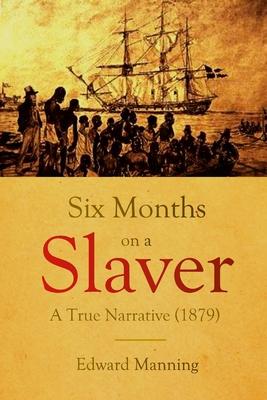
It is a plain, unvarnished narrative of the manner of obtaining and of conveying a cargo of Africans from the African coast to Yucatan. Several instances of inhuman treatment inflicted on the poor slaves, and the general unpleasantness of the subject, work upon the sympathies too much to make it altogether pleasant reading; but the author tells his story simply, without aiming at producing any sensation, and it appears a faithful record of the way the debasing traffic was carried on.
Edward Manning was a sailor from New London, Connecticut, who in 1860 signed on with the "whaling" ship "Thomas Watson" only to later find it was a "slaver" ship on a voyage to transport slaves from Africa to Yucatan. Manning wrote of his experiences aboard the slaver in his 1879 book "Six Months on a Slaver: A True Narrative."
It is a plain, unvarnished narrative of the manner of obtaining and of conveying a cargo of Africans from the African coast to Yucatan. Several instances of inhuman treatment inflicted on the poor slaves, and the general unpleasantness of the subject, work upon the sympathies too much to make it altogether pleasant reading; but the author tells his story simply, without aiming at producing any sensation, and it appears a faithful record of the way the debasing traffic was carried on.
Edward Manning was a sailor from New London, Connecticut, who in 1860 signed on with the "whaling" ship "Thomas Watson" only to later find it was a "slaver" ship on a voyage to transport slaves from Africa to Yucatan. Manning wrote of his experiences aboard the slaver in his 1879 book "Six Months on a Slaver: A True Narrative."
Paperback
$9.99